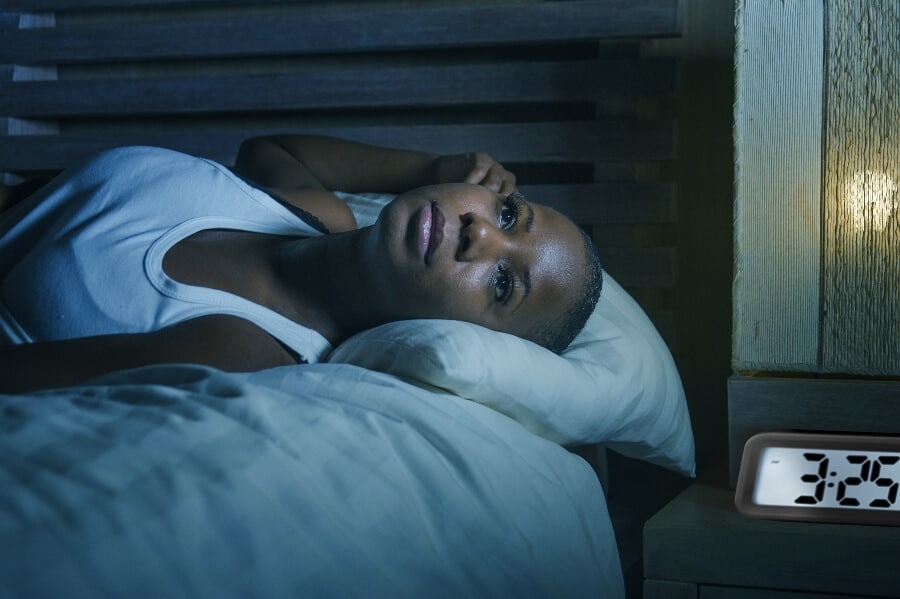“My midlife friends and I now swap sleep advice as enthusiastically as we used to trade diet tips.” Ginny Graves wrote that line in her piece on insomnia we published four years ago. I’ve always remembered it and marveled at its deep truth. In midlife, I became an insomniac and I have spent years and much money trying different kinds of treatment, until I found something that worked for me.
I guard my relationship with the Sandman very carefully, and when I came across two new studies that show what can happen if you don’t get enough Zzzz-time, I’m very glad I’ve put so much effort into cultivating good sleep.
The Dementia Connection
The first study, published in Nature, found that getting too little time in dreamland can up your chances of cognitive decline and dementia. According to the study, which followed nearly 8,000 people in Britain for about 25 years, beginning when they were 50 years old, sleeping six hours or less in your 50s and 60s was associated with a 30 percent increased dementia risk in your 70s. Seven hours is considered normal.
I have spent years and much money trying to treat my insomnia.
“The study found a modest, but I would say somewhat important association of short sleep and dementia risk,” said Pamela Lutsey, an associate professor of epidemiology and community health at the University of Minnesota, told the New York Times. “Short sleep is very common and because of that, even if it’s modestly associated with dementia risk, it can be important at a societal level. Short sleep is something that we have control over, something that you can change.”
As for the reasoning behind the sleep-dementia connection, studies have found that cerebrospinal fluid levels of amyloid, a protein that clumps into plaques in Alzheimer’s, increase in insomniacs. Other studies of amyloid and another Alzheimer’s protein, tau, suggest that while you snooze these proteins are cleared from the brain.
Read More: Can’t Sleep … Like, Ever? Read How One Insomniac Tried Every Solution
The Libido Link
This particular connection—women who sleep poorly are nearly twice as likely to report issues such as lack of sexual interest or pleasure than women who get plenty of shut-eye—makes more sense. If you’re tired, it’s definitely difficult to get jazzed about using your bed for anything but snoozing. But researchers, being researchers, dug a little deeper on this connection.
For this study, which was published in Menopause, the Journal of the North American Menopause Society, scientists evaluated potential associations between sleep quality and duration and sexual function in more than 3,400 women, who had a mean age of 53 years. They concluded that poor sleep quality, but not sleep duration, was associated with greater odds of female sexual dysfunction (another way of saying it’s just not fun anymore). Good rest, in contrast, was linked with lots of sexy time.
As we all know too well, both sleep and sex issues are common at this point in our lives. The menopause society reports that more than 26 percent of midlife women experience significant sleep symptoms that can be defined as insomnia, and sleep problems are reported by nearly half of women during the menopause. (This tracks with our own survey about sleep habits.) Up to 43 percent of women report sexual fizzle during this same period in their lives.
Why Is Sleep So Important?
My particular kind of insomnia is related to the concern that I won’t sleep well the next night, or ever again in my life.
I am not happy to know about these possible consequences of not getting enough sleep, actually. Anyone who has had trouble sleeping has heard the advice that you shouldn’t worry about one bad night. The idea is that the worst that happens is you have a bad day the next day but that you sleep really well the following night.
My particular kind of insomnia is related to the concern that I won’t sleep well the next night, or ever again in my life. One bad night leads me to obsess about all the dominos that will fall from my tossing and turning under the sheets.
I was glad to read in the New York Times article about dementia that at least one doctor understood how those of us who worry about sleep could be impacted by the findings in these recent studies. “Insomniacs—who probably don’t need something else to ruminate about in bed—shouldn’t worry that they are heading for dementia unless they get off to sleep immediately,” said Robert Howard, a professor of old age psychiatry at University College London. Thank you Professor Howard. Other scientists believe that the study on dementia, though broad, isn’t at all conclusive.
The upshot of all this is to not accept insomnia as inevitable; sleep is something you can cultivate, sort of like prized orchids. I like what Norma Kamalia—a fashion designer, yes, but one who has devoted herself and a new book to better health—at our virtual Out Loud event in February. “From the moment you wake in the morning, everything you do during the day impacts how you will sleep that evening. Therefore it is important to make sure the things you do are complementing a restful night, instead of undermining it.” Sleep is so important that you should work on it the whole day so you can get a whole night.





















0 Comments